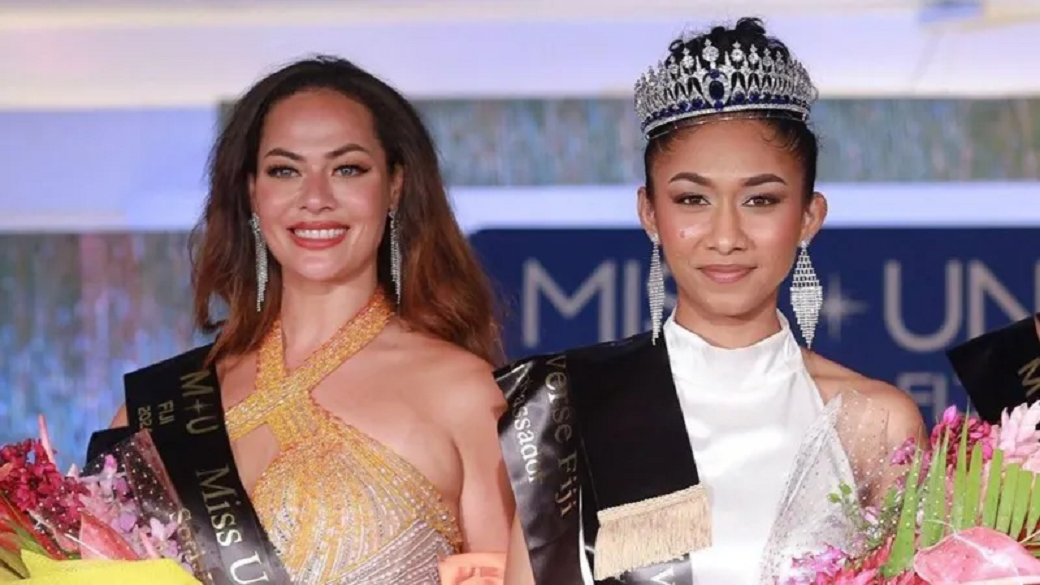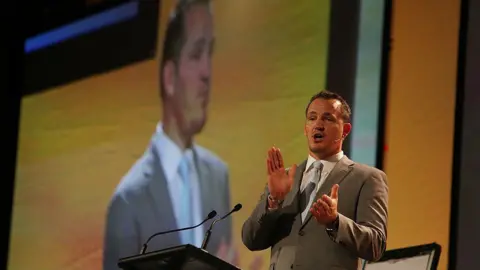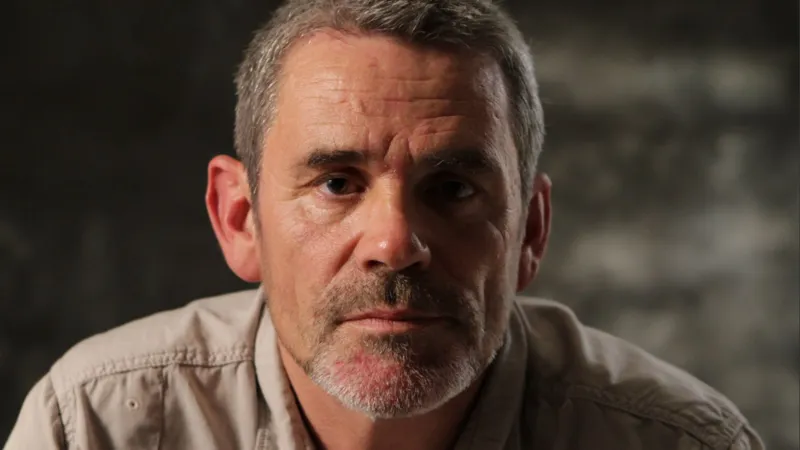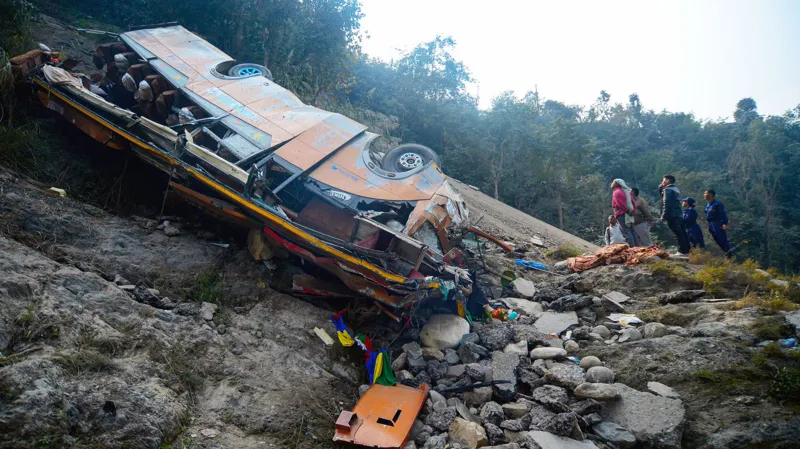Foreign News
A beauty pageant turned ugly: The alleged plot to steal a queen’s crown

In a tucked-away corner of paradise, overlooking the clear waters of the South Pacific, a cyclone of controversy was about to descend on Fiji’s Pearl Resort & Spa.
Standing on stage clutching a bouquet of flowers, 24-year-old MBA student Manshika Prasad had just been crowned Miss Fiji.
But soon after, according to one of the judges, things at the beauty pageant “turned really ugly”.
Ugly is potentially an understatement: what unfolded over the next few days would see beauty queens crowned and unseated, wild allegations thrown around and eventually the emergence of a shadowy figure with a very personal connection to one of the contestants.
Ms Prasad first found out something was wrong two days after her win, when Miss Universe Fiji (MUF) issued a press release. It said a “serious breach of principles” had occurred, and “revised results” would be made public shortly. A couple of hours later, Ms Prasad was told she wouldn’t be travelling to Mexico to compete for the Miss Universe title in November.
Instead, runner-up Nadine Roberts, a 30-year-old model and property developer from Sydney, whose mother is Fijian, would take her place.
The press release alleged the “correct procedures” had not been followed, and that Ms Prasad had been chosen in a rigged vote which favoured a “Fiji Indian” contestant to win because it would bring financial benefits to the event’s manager.
A distraught Ms Prasad issued a statement saying she would be taking a break from social media, but warned that there was “so much the public did not know about”.
The new queen, meanwhile, offered a message of support. “We are all impacted by this,” Ms Roberts wrote on Instagram, before thanking Miss Universe Fiji for its “swift action”.
But those who took part in the contest were not satisfied: there were too many things that didn’t add up.

“Everything had been running so smoothly,” says Melissa White, one of seven judges on the panel.
A marine biologist by trade, she had been flown in from New Zealand to weigh in on the charity and environmental aspects of the contest.
“It was such a great night, such a successful show. So many people were saying they’d never seen pageant girls get along so well,” Ms White tells the BBC.
As the competition drew to a climax on Friday night, the judges were asked to write down the name of who they thought ought to be the next Miss Fiji.
“By this stage, Manshika [Prasad] was the clear winner,” says Jennifer Chan, another judge, who’s a US-based TV host and style and beauty expert. “Not only based on what she presented on stage but also how she interacted with the other girls, how she photographed, how she modelled.”
Ms Chan says she was “100% confident” that Ms Prasad was the strongest candidate to represent Fiji.
Enough of her fellow judges agreed and Ms Prasad was declared the winner – receiving four of the seven votes.
But as the newly-crowned Miss Universe Fiji stood on stage, beaming in her sparkling tiara, the judges sensed something was wrong.
To her right, Nadine Roberts – wearing her runners-up sash – was “seething”, alleges Ms Chan. “I remember going to bed thinking, how could someone feel so entitled to win?
“You win some, you lose some. She’s a seasoned beauty pageant contestant – surely she knew that?”
The next day, Ms Prasad took a celebratory boat trip with the judges. “She was just in awe, saying: my life will be changed now,” says Ms Chan.
“She’s the embodiment of that good-hearted person who deserves it – it just affirmed to me that I’d picked the right girl.”
But there had still been no official confirmation of Ms Prasad’s victory.
Not only this – one of the judges was conspicuously absent from the trip: Riri Febriani, who was representing Lux Projects, the company that bought the licence to hold Miss Universe in Fiji.
“I remember thinking that was odd,” says Ms White, who shared a room with Ms Febriani. “But she just said she had lots of work to do and she needed to talk to her boss.”
Ms Febriani says she didn’t go on the boat trip as she needed to rest – and there’s no way the others would know who she was messaging on her phone.
But Ms White says she worked out her roommate was fielding calls and texts from a man called “Jamie”.

Miss Universe is a multi-million-dollar business which operates like a franchise – you need to buy a licence which enables you to use the brand and sell tickets for the event.
Those licences are expensive and in small countries it’s hard to find anyone willing to fund a national pageant – which is why Fiji hasn’t entered a contestant since 1981.
But this year, one organisation was willing to buy the licence: property development firm Lux Projects.
Ms Febriani was its representative on the judging panel, but also looked after media communications.
“I’d got on so well with her, she seemed a very sweet person,” says Ms White.
“But that day when she didn’t come on the boat, her demeanour kind of changed. She just kept saying she was super busy with work, always on the phone with this ‘Jamie’ guy.”
It turned out that, despite having Ms Febriani on the panel, Lux Projects was not happy with the outcome of the vote.
Its press release on Sunday said the licensee itself should also get a vote – one which the contracted organiser, Grant Dwyer, had “failed to count”.
Lux Projects would have voted for Ms Roberts, bringing the results to a 4-4 tie.
What’s more, it said, the licensee also had the “determining vote” – making Ms Roberts the winner.
“Never at any point were we told about an eighth judge or any kind of absentee judge,” says Ms Chan.
“It wasn’t on the website, it wasn’t anywhere. Besides, how can you vote on a contest if you’re not even there?”
Ms White was also suspicious.
“I did some digging and it turns out that Lux Projects was closely associated with an Australian businessman called Jamie McIntyre,” says Ms White.
“And Jamie McIntyre,” she told the BBC, “is married to Nadine Roberts.”
Mr McIntyre describes himself as an entrepreneur, investor and “world-leading educator”, who has – according to information available online – been married to Ms Roberts since 2022.
He was also banned from doing business in Australia for a decade in 2016 due to his involvement in a property investment scheme that lost investors more than A$7m ($4.7m; £3.6m).The judge in the case said there was “no evidence to suggest that successful reform is likely”
A senator who questioned him as part of a parliamentary committee hearing later described him as “the most evasive witness I have had to deal with – and that’s saying something”, according to the Sydney Morning Herald.
But what was he doing here?
“Mr McIntyre isn’t a director or shareholder of the MUF licensee company, but has acted as an adviser, as he is a shareholder in associated companies,” Jamie McIntyre’s representatives told the BBC.
However, the company’s Instagram page does feature a video of Mr McIntyre giving property investment advice, as well as a link to 21st Century University, a Bali-based property company owned by Mr McIntyre.
The BBC also understands that a “Jamie” was on the line during phone calls between Ms Roberts and the event organiser, Grant Dwyer.
Mr McIntyre’s representatives insist that allegations that he was involved in the judging controversy are a “conspiracy theory” – although they did concede that he had “provided advice to the licence holder”.
Additionally, the press release’s allegation that Mr Dwyer had pressured the panel to choose Ms Prasad because of her race is undermined by the fact that Mr Dwyer is understood to have voted for Ms Roberts.

“It’s just gross to even bring up race,” says Ms Chan. “It was never, ever once uttered amongst any of the judges,” she adds.
The BBC has sought comment from both Ms Roberts and Ms Prasad, but neither has responded.
Several of those involved – including some judges and contestants – have been sent “cease and desist” emails by Lux Projects, the BBC understands, which have been taken as tantamount to gagging orders by the recipients.
This scandal in Fiji is by no means the first to hit the world of beauty pageants, which historically has seen its fair share of controversies.
“Pageants are full of drama, of controversies, of people saying the contest was a fix,” says Prof Hilary Levey Friedman, author of ‘Here She Is: The Complicated Reign of the Beauty Pageant in America.’
“But I will say that in more recent years, these issues have become much more pronounced thanks to social media,” she adds.
Apart from a voting scandal at the Miss America contest in 2022, recent controversies have tended to be in less developed parts of the world.
This is probably because they tend to be non-profit affairs in many Western countries, according to Prof Friedman, while pageants elsewhere have become more popular and more lucrative than ever.
“Historically, beauty pageants have been an amazing tool for social mobility for women,” says Prof Friedman.
“Apart from the prestige and the glory, it gives you a platform to attract followers and sponsorships. When there’s money involved, the stakes are higher.”
For Ms Prasad though, it turns out there is a happy ending.
On Friday, she posted on one of her social media accounts that she had indeed been re-crowned as Miss Fiji 2024.
“What an incredible journey this has been,” she wrote on Instagram.
Miss Universe Organization (MUO) has not responded to a request for comment, but the BBC understands it is extremely unhappy with the events in Fiji and, after having established the facts, worked hard to reinstate Ms Prasad as the island’s queen.
For Ms Prasad there is elation. For the judges, relief.
As for Ms Roberts, she is calling herself the “real Miss Universe Fiji 2024” on Instagram.
Judge Ms White says she’s “so proud of how Manshika [Prasad] has conducted herself throughout this journey. She’s a brilliant, compassionate, and beautiful young woman, who didn’t deserve this.
“We just wanted the truth to come out and now it has.”
[BBC]
Foreign News
War photographer Paul Conroy dies as tributes paid

Tributes have been paid to the war photographer Paul Conroy who has died at the age of 61.
He covered conflicts around the world and was wounded in the Syrian army’s bombardment of Homs, which killed his Sunday Times colleague Marie Colvin in 2012.
Their fateful assignment was depicted in the 2018 movie A Private War, with the actor Jamie Dornan playing Conroy.
The Liverpool-born photographer died from a heart attack on Saturday in Devon, where he had lived, his brother Alan told the BBC.
“He did all his life what he wanted to do to make a difference – he found great pleasure in exposing wrongs,” Alan added.
BBC newsreader Clive Myrie posted that he was “utterly devastated” by the news, describing Conroy as “a wonderful photojournalist and a wonderful human being”.
“I counted him as a friend and a decent, principled and kind man. My brutha you will be sorely missed. RIP”
Lindsey Hilsum, international editor at Channel 4, added: “All of us who knew and loved him are devastated.”

Conroy also spent seven years with the Royal Artillery as a soldier before becoming a professional photographer and was a trustee of the Frontline Club for media professionals, diplomats and aid workers.
Its founder Vaughan Smith, who was also in the Army, said: “He was one of the characters – those people who stand out because everybody adores them and they make you feel better.”
The 2018 documentary Under the Wire was made about Conroy’s escape from the 2012 bombardment of a makeshift media centre in Homs, where his colleagues Marie Colvin and Remi Ochlik were killed.
Referring to the Syrians who were killed in the area, he said: “These beautiful people who were being slaughtered, I wanted to tell their story.”
He only realised how badly injured he was when he returned to the UK.
“Obviously I knew I had a huge hole in the back of my leg,” he said.
“But in London I found out I also had a great big piece of shrapnel wedged under my kidneys. I had 23 operations on my leg and others on my abdomen and back. I was in hospital for five months.”
Conroy worked in Libya and Ukraine and had recently returned from an assignment in Cuba.
He also took photos for the British singer Joss Stone and wrote music with her.
She said she was “so grateful to have known him and honoured to call him my friend”.
“I wouldn’t be the person I am today without Paul. Paul Conroy was a legend. A wonderful person through and through. Always standing up for what was right. Always there for those in need.”
He leaves behind a wife, three sons and grandchildren.
[BBC]
Foreign News
Iran begins 40-day mourning after Khamenei killed in US-Israeli attack

Iran has begun 40 days of mourning after Supreme Leader Ayatollah Ali Khamenei was killed in ongoing attacks by the United States and Israel, according to Iranian state media.
Top security officials were also killed in Saturday’s strikes, along with Khamenei’s daughter, son-in-law and grandson. The killings mark one of the most significant blows to Iran’s leadership since the 1979 Islamic revolution.
President Masoud Pezeshkian condemned the killing as “a great crime”, according to a statement from his office. He also declared seven days of public holidays in addition to the 40-day mourning period.
Reporting from Tehran, Al Jazeera’s Tohid Asadi said people were pouring into the streets of the capital following the news of Khamenei’s killing.
“There will be expected ceremonies,” he said, noting they would likely take place amid continuing bombardment across the country.
Protests denouncing Khamenei’s killing were also reported elsewhere, including Shiraz, Yasuj and Lorestan.
Footage aired by Iranian state media showed supporters mourning at the shrine of Imam Reza in Mashhad, with several people seen crying and collapsing in grief.
The killing also led to protests in neighbouring Iraq, which declared three days of public mourning. In Baghdad, protesters confronted security forces in the heavily fortified Green Zone, which houses Iraqi government buildings and foreign embassies.
Videos verified by Al Jazeera showed demonstrators waving flags and shouting slogans, with witnesses saying some were attempting to mobilise towards the US Embassy. Footage also showed protesters blocking vehicles at a roundabout near one of the entrances to the area.

There was also a protest in the Pakistani city of Karachi, where footage, verified by Al Jazeera, showed people setting fire to and smashing the windows of the US consulate.
However, there have also been reports of celebrations in Iran, with the Reuters news agency quoting witnesses as saying some people had taken to the streets in Tehran, the nearby city of Karaj and the central city of Isfahan.
Meanwhile, the official IRNA news agency reported that a three-person council, consisting of the country’s president, the chief of the judiciary, and one of the jurists of the Guardian Council, will temporarily assume all leadership duties in the country. The body will temporarily oversee the country until a new supreme leader is elected.
Khamenei assumed leadership of Iran in 1989 following the death of Ayatollah Ruhollah Khomeini, who had led the Islamic revolution a decade earlier.
While Khomeini was regarded as the ideological force behind the revolution that ended the Pahlavi monarchy, Khamenei went on to shape Iran’s military and paramilitary apparatus, strengthening both its domestic control and its regional influence.
Meanwhile, the Islamic Revolutionary Guard Corps (IRGC) pledged revenge and said it had launched strikes on 27 bases hosting US troops in the region, as well as Israeli military facilities in Tel Aviv.
[Aljazeera]
Foreign News
Briton among 19 killed in Nepal bus crash

A 24-year-old British man is among 19 people who were killed in a bus crash in Nepal, police say.
The bus – which had been carrying tourists – had been travelling to the capital, Kathmandu, when it lost control and fell 200m on to the bank of the Trishuli river, in the country’s central Dhading district, in the early hours of Monday morning.
There were 44 people onboard including the driver, 25 of whom suffered injuries. The bus had been travelling from Pokhara, a popular tourist spot.
Nepal’s Home Ministry has created a five-member taskforce to investigate the cause of the incident. The UK Foreign Office said it was assisting the family of the Briton who was killed.
Nepalese authorities identified him as Stewart Dominic Ethan. His name has not been confirmed by the Foreign Office.
Nepalese police say they have identified all 19 bodies, including a 40-year-old Chinese woman and a 32-year-old man from India. Among the injured is a Chinese national and a New Zealander.
All the injured had been taken to hospitals in the capital, they added. Children were among those onboard.
Multiple teams were sent to the site, including police units, the army and a rescue team of divers, authorities said.
Police spokesman Abinarayan Kafle said 17 people died at the scene, with two more dying while receiving treatment, BBC Nepali reported.
Road accidents are relatively commonplace in Nepal, due to a range of factors including poor road maintenance and narrow paths in mountainous areas.
In 2024, at least 14 people died after a bus travelling from Pokhara to Kathmandu fell into the Marsyangdi river in the Tanahun district.
“We are supporting the family of a British man who has died in Nepal and are in contact with the local authorities,” a Foreign Office spokesman told the BBC.
Nepal is a popular destination for many international visitors, especially climbers, who travel there to access a key section of the Himalaya mountain range that includes Mount Everest.
Home to eight of the world’s tallest peaks, mountaineering is a significant source of revenue for the country – in 2024 climbing fees brought in $5.9m.
[BBC]
-

 Opinion4 days ago
Opinion4 days agoJamming and re-setting the world: What is the role of Donald Trump?
-

 Features4 days ago
Features4 days agoAn innocent bystander or a passive onlooker?
-

 Features6 days ago
Features6 days agoBuilding on Sand: The Indian market trap
-

 Opinion6 days ago
Opinion6 days agoFuture must be won
-

 Features5 days ago
Features5 days agoRatmalana Airport: The Truth, The Whole Truth, And Nothing But The Truth
-

 Business6 days ago
Business6 days agoDialog partners with Xiaomi to introduce Redmi Note 15 5G Series in Sri Lanka
-

 Business5 days ago
Business5 days agoIRCSL transforms Sri Lanka’s insurance industry with first-ever Centralized Insurance Data Repository
-

 Sports7 days ago
Sports7 days agoCEA halts development at Mandativu grounds until EIA completion













